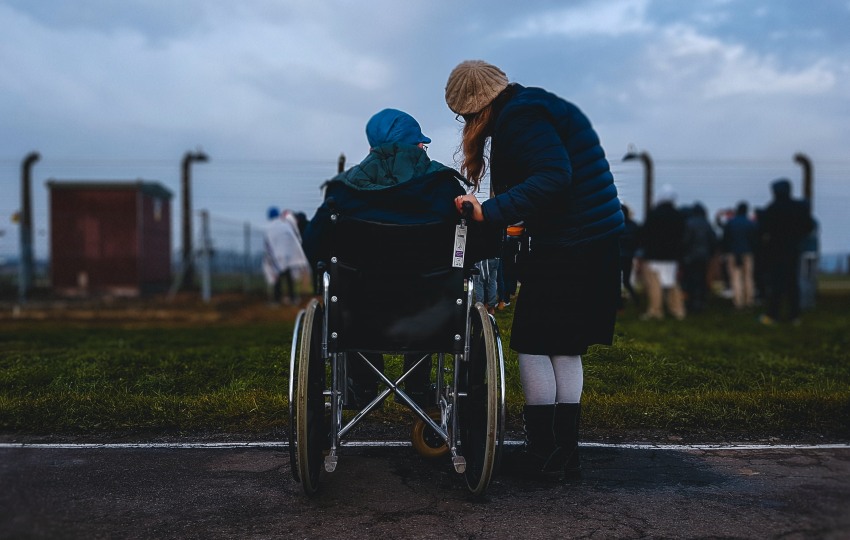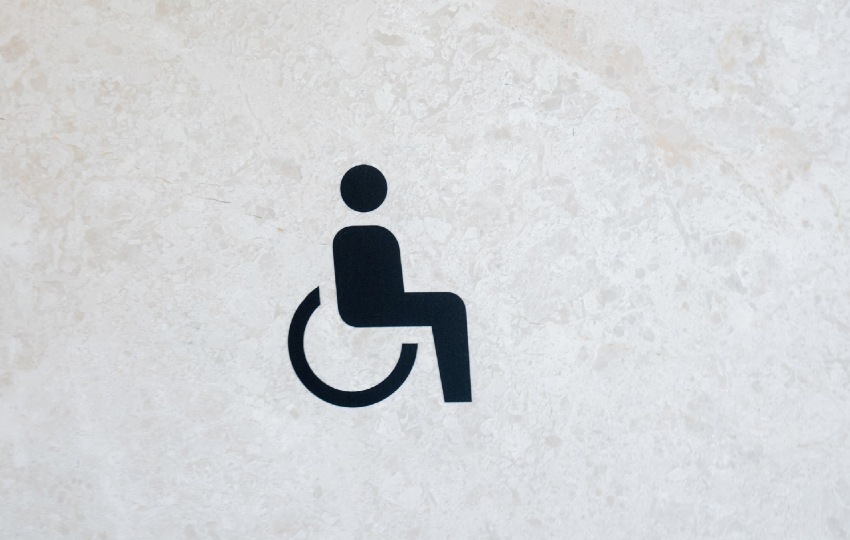Employment and disability in the EU will be high in the European agenda for 2021 – 2030. Despite all efforts so far, people with disabilities remain at a higher risk of poverty and social exclusion. At the same time, they do not have equal access to public services or social life participation like access to health, school, and work. These are important topics that will need a solution soon to really have equality among citizens.
What has the EU done so far on this issue? What is the action plan for the future? This article will answer those questions and will provide a brief overview of the current situation.
Employment and Disability in the EU with Numbers
About one in six people currently in the EU above 15 have some form of disability or roughly 125 million European citizens. Concerning the world of work, only 50.6% of people with disabilities have a job compared to 74.8% of non-handicapped people. Specifically, the unemployment rate for disabled people between 20-64 stands at 17.1% and 10.2%, respectively. Finally, it is found that women and young persons with disabilities are more likely to face discrimination in the job market.
Important European Policies and Treaties for Disability
The statistics above clearly show that people with disabilities find it harder to get a job. Of course, this results in several negative effects on their well-being and serious economic implications for societies. Social inclusion of people with disabilities is primarily based on Member State’s policies. But the European Union has introduced several initiatives, actions, and strategies to help with employment and disability in the EU.
The first legal basis on which the EU fights discrimination against people with disabilities started back in 1997. In the Treaty on the Functioning of the European Union (TFEU), the EU vowed to help fight discrimination during the definition and implementation process of policies and activities. Specifically, discrimination based on sex, racial or ethnic origin, religion or belief, disability, age or sexual orientation.
Since then, the EU has adopted and ratified several more treaties at the European and International levels. Prime examples are the UN CRPD and the Charter of Fundamental Rights of the European Union that put more focus on employment and disability in the EU. These recognized the right to work as a fundamental right for disabled people and made imperative the need for taking concrete measures for their professional integration. Because being able to work gives the possibility to lead a normal life and be an equal part of society.

The European Disability Strategy 2010-2020
During the previous decade, the EU was very active concerning employment and disability in the EU. In 2010 the European Commission published the European disability strategy 2010-2020 that laid an action plan for the decade. It aimed to enable persons with disabilities to participate equally in society and the economy drawing from UN CRPD and complementing the Europe 2020 strategy and the Charter of Fundamental Rights.
The action plan covered eight areas of concern for people with disabilities: accessibility,
participation, equality, employment, education, social protection and inclusion, health, and
external action. In particular, The strategy aimed to increase the participation of people with disabilities at work. To achieve that, the strategy:
- analyzed the work situation of people with disabilities;
- fought against the disability benefit culture that discourage people from working;
- helped their work integration through the European Social Fund (ESF);
- developed active labour market policies;
- made workplaces more accessible;
- developed job placement services and supported job trainings;
- promoted the use of the General Block Exemption Regulation, allowing State aid grants without prior notification of the Commission.
Concerning implemented initiatives for employment and disability in the EU, many were designed to assist disabled people with their employment. Those initiatives included:
- workplace adapatations;
- non-discrimination
- public employment services
- financial incentives
- accessiblity and EU Funding
This was pretty much the situation and EU actions taken to deal with the employment issues of disabled persons until 2020. But, as we have entered already the new decade, let us see what the EU has in store for people with disabilities.
The New Strategy for the Rights of Persons with Disabilities 2021-2030
Despite all the ambitious efforts made between 2010-2020, there is still more to be done. Prime issues like employment and access to healthcare are there to remind us that discrimination is still alive. Furthermore, the COVID-19 pandemic made the existing inequalities even worse. But there is a solid foundation on which the EU can build further after all these efforts. For this reason, it is vital a new and strengthened Strategy for the Rights of Persons with Disabilities to create a new action plan for 2021-2030. Especially, it will serve as a guide for all actions by Member States and EU institutions to bring more solutions to the remaining challenges.
The renewed aim of this strategy is to build on the progress made in all areas and the spirit of the EU’s recognized values. To ensure that people with disabilities enjoy their human rights, have equal opportunities, equal participation in society, autonomy, and do not suffer from discrimination.
As we are still waiting to see the specific actions taken for employment and disability in the EU, we have an overview of the new strategy. They may not be focused on employment, but improving their day to day lives is the first step for their social and work inclusion.

The New Strategy Action Plan for 2021-2030
The European Commission’s action plan for the new decade will focus on various aspects of disabled persons daily lives:
- Making it easier for people with disabilities to move to any EU country and live freely;
- providing the right support to disabled persons to have a good life;
- making their independed living a reality;
- being an active part of the community;
- making their own decisions about their lives;
- having the same chances for work and studies as their peers;
- having access to health care and critical services they need;
- fighting prejudices and unfair treatment due to their disabilities.
For the most part, this is an ambitious plan that will greatly affect people’s with disabilities lives. The EU has to guarantee that every disabled person will have access to quality education to empower their lives. Having a solid educational background and given that they have all the support they require, disabled persons will close the inequality gaps quickly.
Improving Employment and Disability in the EU through In Touch
The In Touch project, that iED participates as a project partner, wants to bridge the opportunities gap that exists for people with disabilities. The project focuses on young people with disabilities to provide them with the necessary entrepreneurial skills to start their own ventures. This project contributes to both the necessary learning opportunities that persons with disabilities are lacking and helps them become self-employed and autonomous. That way, they will avoid the social stigma and prejudice that many workplaces are full of.
Are you interested in making an impact on employment and disability in the EU in the coming decade? iED is an experienced partner in social inclusion European projects that will add value to your project consortium.
If you are looking for an experienced EU project partner and leader, be our partner for a winning consortium.

